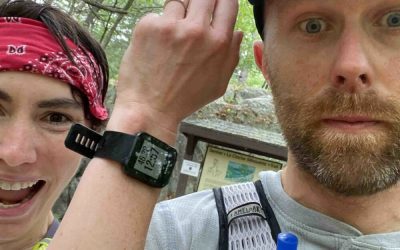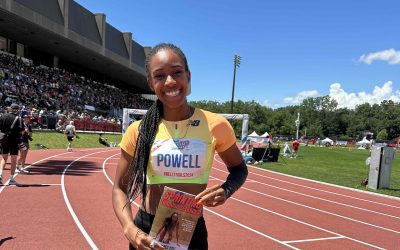“Range: Why Generalists Triumph in a Specialized World” by David Epstein was this month’s pick for the Athletic Bookworms for a couple reasons, but the main one is because when this book came out, we had a dozen people recommend it because it’s exactly the philosophy we have behind The Consummate Athlete Podcast (and he’s on talking to us this week!). I was so stoked to chat with David, and really enjoyed the book—it’s a departure from the sports-focused ones we’ve read in the last year but still talks plenty about athletes. It’s not a training manual, it’s more of a manifesto for why it matters that we spend time experimenting and exploring.
We started the podcast because we think it’s super important to be athletic in a well-rounded way versus having a super narrow focus (unless you’re getting paid A LOT). We want to be able to rock climb on a Wednesday, ultra-run on a Thursday, SUP on Friday and swim afterwards. Basically, we want to be able to do a ton of movements and sports well. So, what did I learn? Basically, that we’ve been heading in the right direction in the Consummate Athlete pursuit.
Most Elite Athletes Started with a Range
Eventual elites typically devote less time early on to deliberate practice in the activity in which they will eventually become experts. Instead, they undergo what researchers call a “sampling period.”
OK, so I wasn’t exactly experimenting with multiple sports as a kid… but even still, I can see how this is accurate from my own personal experience. I started ‘training’ when I was 19, jumping from classes at the gym to power yoga to swimming to running to triathlon to MMA-style fighting classes to heavy weight training to cycling and cyclocross. I did Ironman, ran marathons, raced cyclocross, jumped into Xterra, and basically dabbled in anything endurance-sport related. At 32, I’m starting to finally feel like I know what I’m good at (ultra-running). While I’m not elite or pro at it, it is what my body seems to respond to and enjoy more than anything I’d tried before. But it wasn’t a super simple pathway getting there. And it was pretty boring, honestly. Like Epstein says, “The Roger path to sports stardom is far more prevalent than the Tiger path, but those athletes’ stories are much more quietly told, if they are told at all.”
Most of Us Need Range Too
Forget the 10,000 hours to expertise, Epstein argues. That only works with certain things: “When we know the rules and answers, and they don’t change over time—chess, golf, playing classical music—an argument can be made for savant-like hyperspecialized practice from day one. But those are poor models of most things humans want to learn.” If we want to get good at most things, we need to have a broad range of experiences and focuses. Even looking at ultrarunning for me, again: If I hadn’t spent years training on the bike or in the pool, building up my aerobic capacity, I would likely be a very injured, beat-up runner at this point. Years of cross-training saved me from years of impact, so that now, I’m ready for it. Similarly, I still love yoga and strength training. I think that’s also helped armor me from injury. If I had just been running for the last 15 years, I honestly don’t think I’d be as healthy as I am now.
It’s OK to Quit
According to Levitt, the study suggested that “admonitions such as ‘winners never quit and quitters never win,’ while well-meaning, may actually be extremely poor advice.” … Knowing when to quit is such a big strategic advantage that every single person, before undertaking an endeavor, should enumerate conditions under which they should quit.
I love this. I see so many athletes pushing themselves to avoid DNFs, shoehorning themselves into sports that injure them over and over again. People working in careers that they hate, when they could move somewhere else. I love the idea of setting parameters for when to quit before going into a new endeavor—it’s something we talk a lot about as I start coming up with ideas for new books and projects. I need to sometimes rein myself in and realize that something isn’t working, but it’s easy to fall into the ‘keep banging your head against the wall’ mood where you’re unwilling to call it quits and move on.
You are Change-able
The precise person you are now is fleeting, just like all the other people you’ve been. That feels like the most unexpected result, but it is also the most well documented…. Adults tend to become more agreeable, more conscientious, more emotionally stable, and less neurotic with age, but less open to experience. In middle age, adults grow more consistent and cautious and less curious, open-minded, and inventive.
I love this reminder that despite what we might think as adults, we are still changing and shifting as we age. As someone creeping towards middle age, this served as a great reminder to stay curious and open-minded, rather than slipping into living cautiously. I’m not the same person I was at 18 (thank goodness) but I don’t want to get so far from that willingness to experiment and adventure that I forget how.
Have you read Range yet? What was your favorite takeaway?
(Missed it? Get caught up on RANGE here!)
|||
Before you go, get subscribed for a twice-monthly set of tips, tricks + outdoor adventure !






